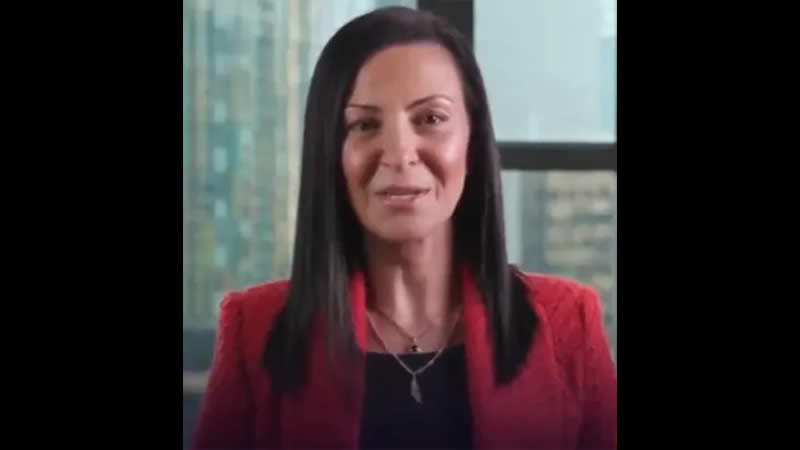Dr. Ruba Borno, a Senior Vice President at Amazon Web Services (AWS), has ignited a controversy after wearing a necklace that many perceive as a political statement in a promotional video for AWS’s upcoming conference. The necklace depicted the map of “Palestine from the river to the sea,” a phrase widely recognized as calling for the elimination of Israel, and considered antisemitic by many, according to the New York Post.
The timing of the video has particularly upset viewers, as it comes just weeks after the abduction of Amazon employee Sasha Troponov, who is being held captive by Hamas. Troponov, an Israeli hardware engineer, was kidnapped on October 7 and is one of 101 hostages still held by the terrorist group.
In the video, Borno invited viewers to attend the AWS tech event in December in Las Vegas, but the necklace she wore dominated the attention. Shaped like the map of Israel but featuring the Palestinian flag instead of the Star of David, the necklace’s symbolism and message were unmistakable, causing an immediate uproar online.
Amazon, responding to the backlash, stated: “The violence and loss of life happening every day in the Middle East is tragic, and at Amazon, our hearts and thoughts are with any person or community that’s affected. Our leadership remains in regular contact with our teams based in the region to offer our support. The video shot was not meant to be a political statement, but we’ve taken down the video and will repost a new one in the coming days.”
Critics are particularly outraged at Amazon’s silence regarding Troponov’s situation. Some feel that Borno’s necklace, coupled with the company’s lack of direct comment on the hostage, sends a troubling message. The situation has been further complicated by the #coffee4Sasha campaign, which was started by Troponov’s colleagues. This initiative encourages supporters to drink coffee daily at 3:00 p.m. and post with the hashtag #coffee4Sasha, as a tribute to Troponov’s tradition and a sign of solidarity.
The incident has sparked intense debate, with many calling for greater sensitivity and responsibility from corporate leaders in times of conflict, especially when their own employees are directly impacted.



